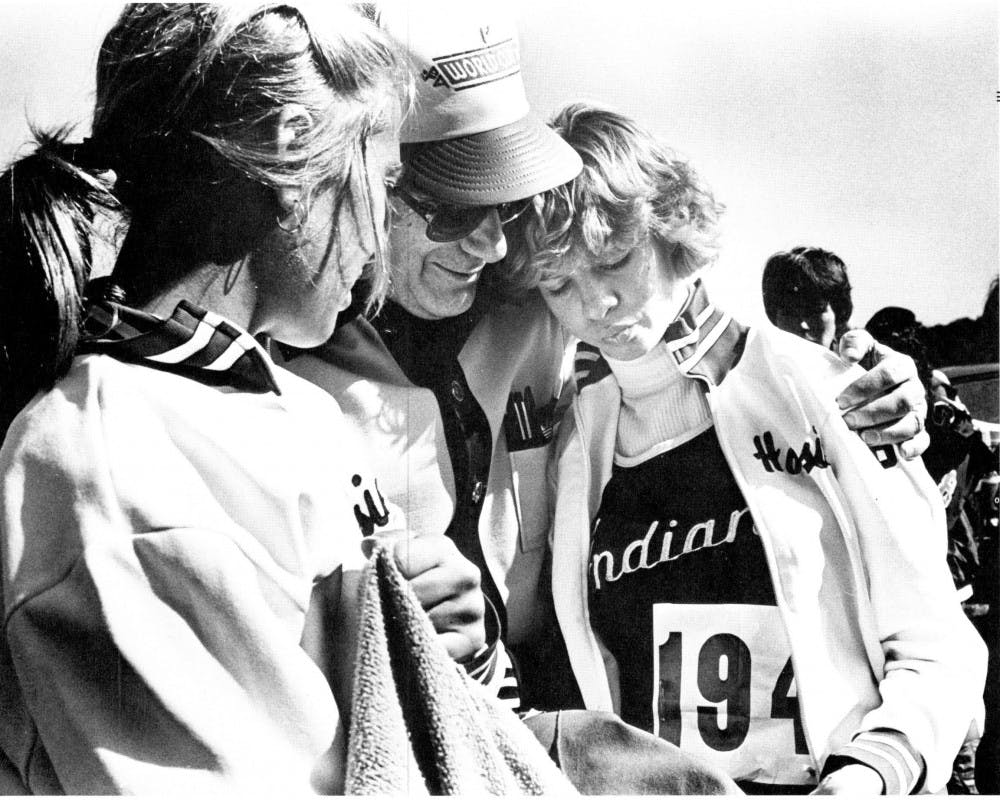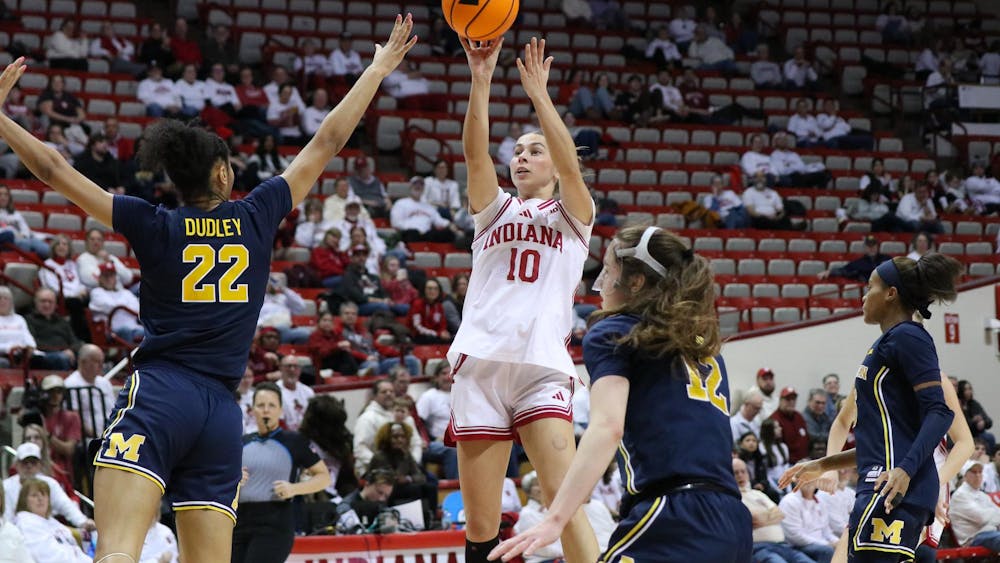Legendary track and field coach Sam Bell died Tuesday at the age of 88. He was remembered as a demanding, yet caring coach.
Bell coached at IU from 1970 to 1998. Bell was named Big Ten Coach of the Year five times and was inducted into the USA Track and Field Hall of Fame in 1992 and the USTFCCCA Hall of Fame in 2000. Bell was inducted into the IU Athletics Hall of Fame in 2003.
Two-time Olympian Bob Kennedy said he saw Bell as someone who helped shape the rest of his life.
“He used coaching as a vehicle to teach young men and women how to be a better human being,” Kennedy said in a release. “I have 11-year-old twins who know about coach because of all of the quotes I have used of his over the years.”
Though Bell was more than a coach, his ability to push his athletes to their limits helped build an extremely successful program. IU won 22 Big Ten titles under his watch and placed in the top 10 in the NCAA Championships 23 times.
Bell coached 141 outdoor Big Ten champions and 92 indoor Big Ten champions, along with 11 Olympians.
One of them was Jim Spivey who saw how demanding Bell was first hand.
“I had just run four minutes in the mile, which was a school and indoor Big Ten record,” Spivey said. “Of course I’m happy, and I walked over to him. He said ‘That’s great, now let’s get the outdoor Big Ten record.’ He already had a new goal for me. He was all about achieving one goal and immediately getting a new one.”
Current coach Ron Helmer said there still remains a bookshelf of the notes he made about each athlete after every meet.
“More often than not he called them out,” Helmer said. “He challenged them. Those guys didn’t like it, but a lot of them took it to heart. Those are some of the things the alumni talk about.”
Spivey said Bell never wanted his athletes to be satisfied and always wanted them to keep pushing. Spivey continued running professionally until he was 37, making his third Olympics at 36.
Spivey learned from Bell to always keep pushing himself.
“A lot of it was from his personality that he instilled in me,” Spivey said. “You try to continue to improve. The day you don’t improve is the day to retire.”
Though Spivey said Bell was demanding, Bell never set goals that he thought his athletes couldn’t achieve.
Olympian Terry Brahm also saw another side of his coach.
“He had a rare combination of high expectations and compassion for each student-athlete,” Brahm said in a release. “The compassion often gets forgotten with Coach. He held such high expectations for each athlete, but was most concerned with the effort we put forward.”
Bell was an opinionated man who wasn’t afraid to show his beliefs, Spivey said. Spivey recalled during one team meeting, Bell got up and said, “I never drank and I never smoked in my entire life, and I didn’t miss a thing.”
“He grew up as Christian, and he wanted to instill that ‘I believe what is right,’” Spivey said. “It wasn’t from his religious beliefs, but he clearly wanted to make sure that people knew he was the coach.”
At one meet, Spivey didn’t win Runner of the Meet and Coach Bell was upset. Bell got into a verbal argument with another coach because Spivey said Bell wanted to stand up for his athlete.
“To show his true demeanor, Bell on the Monday after the meet which was on Saturday, wrote a letter to the coach and apologized,” Spivey said.
Bell also had a major role in the track community beyond Bloomington. He served as the president of the U.S. Track Coaches Association from 1997-2002. He was also the president of the Division I Track Coaches Association from 1979-1980.
“To our sports, Sam was much more than just a coach; he was a leader,” USATFCCA CEO Sam Seemes said in a press release. “Sam was a person who didn’t accept mediocrity, and he unselfishly put himself out on a limb on issues that would make sure our sports remained in the mainstream.”
Even after he stopped coaching at IU, he remained a presence within the program.
Helmer said Bell came to as many home meets as his health would allow. Bell was not just a former coach but was a fan of the program and the athletes.
At times, Bell criticized Helmer for how he was doing things as Bell had his specific thoughts on how things were supposed to be. However, he just wanted the best for IU, Helmer said.
“He came in several times to tell me what I was doing wrong,” Helmer said. “Yet I view those interactions as nothing more than the kinds of interactions he had with his athletes. He obviously cared about the program and needed to communicate important things to me. We both had the same mission — we both wanted the best for IU track and field.”
Spivey said Bell was always someone to talk with and Spivey would come into his office to talk about everything except track and field. He was someone the athletes flocked to for advice, Spivey said.
“Not only did he make me a better runner, he made me a better person post-collegiately,” Spivey said. “He was a person that molded people as individuals.”






